---------------------------------------------------------
Did you know plants have best friends and enemies? Your garden beds might as well be a catty high school cafeteria and you don’t want the potatoes sitting down at the tomato’s table. Ok, maybe it’s not quite that bad (maybe I just have too many teenagers running around my house!). Plants do have “friends” and just like human friendships, plant friends help each other grow. This is called companion planting.
The science behind Companion Planting
There are plenty of ways plants can help each other out. Tall plants (like sunflowers) can help shade short shade-loving plants (like lettuce). Sometimes a companion can deter pests that like to go after their friend. Nematodes love to eat melons but they hate the smell of marigolds. By planting them together you can naturally deter nematodes.
Bean vines attract beneficial insects (like spiders) that like to prey on insects that will eat your corn. Onion’s strong smell can deter many kinds of pests. Sometimes companions can enhance the taste of plants they are sharing soil with. Basil will improve most plants but works especially well with tomatoes. Dill & cucumbers are another obvious pairing.
Companion plants can be plants that complement rather than compete for resources. Beans help fix soil by adding in extra nitrogen, something that nitrogen-loving tomatoes would appreciate. Calendula attracts a wide range of pollinators. This makes it a great friend for lots of plants that flower, like squash and cucumbers.
The entire concept of companion planting just reinforces my belief that your garden is meant to be a diverse mix, not rows and rows of the same plant! A great way to showcase companion planting is in a square foot garden – click here to learn about square foot gardening
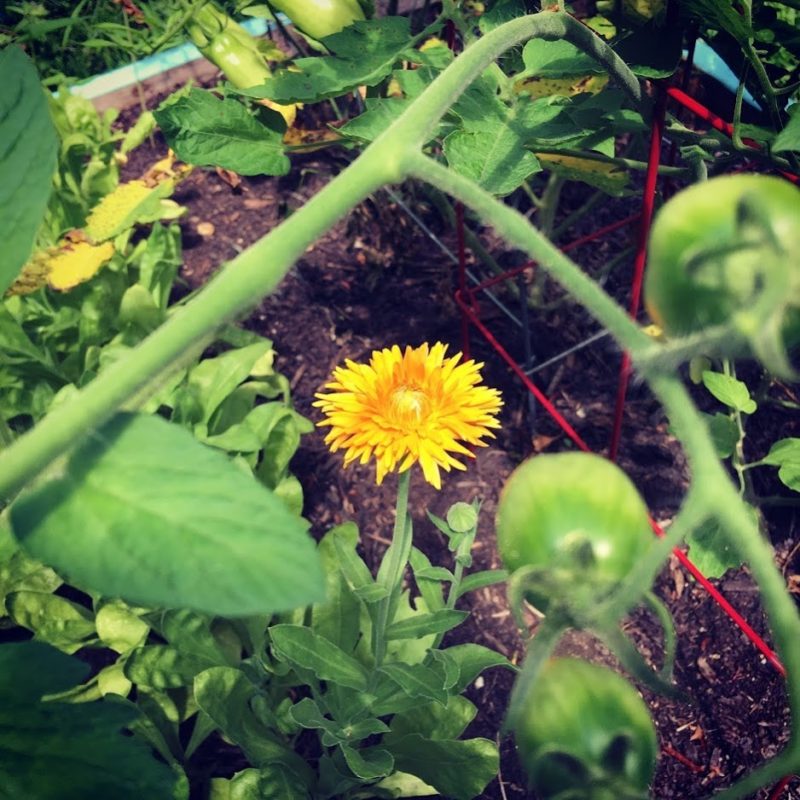
Bad Pairings
With every good there comes some bad. There are some plant pairings that you should avoid. Nightshade family members like potatoes and tomatoes are affected by the same types of blight. Planting them together can contribute to the spread of disease. They also are both heavy nitrogen feeders so they could compete for resources, stunting the growth of both. A tomato’s extensive root system can stunt the growth of carrots. Onions & beans can also stunt each other’s growth.
Ready to try companion planting?
Below you will find a guide to some of the most commonly found plants for gardeners. “Friends” are plants that will help that plant, and “enemies” will hinder that plant. They aren’t always the same! A good example is with carrots & tomatoes. Carrots planted near tomatoes could be stunted by the huge root structure of the tomato, however, the tomato will grow better & be more flavorful. This makes carrots a friend of tomatoes, but tomatoes are an enemy of carrots. Planting flowers like marigolds, calendula, sunflowers & nasturtiums can make your garden gorgeous and more diverse. The flowers will also attract a ton of pollinators and beneficial insects so it’s a great idea to sprinkle them all around!
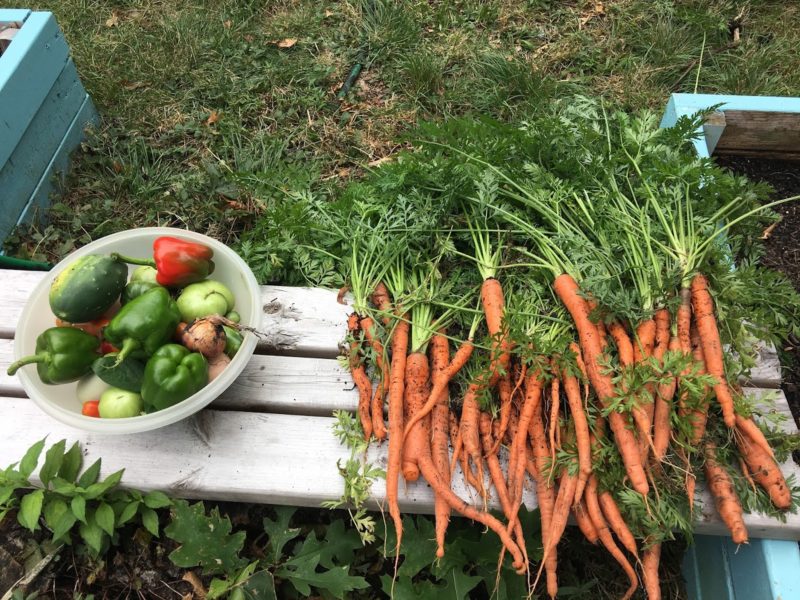
Companion Planting Guide
- Asparagus
friends: tomatoes, parsley
enemies: onions, garlic, potatoes - Basil
friends: tomatoes, asparagus & peppers – but pretty much everyone!
enemies: none - Beans, Bush
friends: beets, cabbage, carrots, cauliflower, corn, cucumbers, marigolds, potatoes, strawberries
enemies: garlic, leeks, onions, shallots
- Beans, Pole
friends: corn, marigolds, potatoes, radishes
enemies: beets, garlic, leeks, onions, shallots - Brassicas (broccoli, Brussels sprouts, cabbage, cauliflower..)
friends: beets, chamomile, dill, mint, rosemary, sage, onions, garlic
enemies: tomatoes, potatoes, eggplant, strawberries - Carrot
friends: lettuce, onions, peas, radishes, rosemary
enemies: dill, parsnips, tomatoes, potatoes - Corn
friends: beans, cucumbers, melons, peas, pumpkins, squash, sunflowers
enemies: tomatoes, celery - Cucumber
friends: beans, cabbage, corn, radishes, sunflowers, marigolds, carrots, dill
enemies: late potatoes - Eggplant
friends: green beans, peppers, potatoes, tomatoes, peas, spinach
enemies: none - Garlic
friends: cabbage, cane fruits, roses, tomato, celery, lettuce, potatoes, tomatoes
enemies: peas, beans - Lettuce
friends: beets, carrots, parsnips, radishes, strawberries, onions, cucumbers, sunflowers
enemies: cabbage, celery, parsley - Marigold (Calendula)
friends: everyone!
enemies: none - Melons
friends: corn, marigolds, nasturtiums, pumpkin, radish, squash, sunflowers
enemies: potatoes - Nasturtiums
friends: apples, beans, cabbage, potatoes, pumpkins, radishes, squash, cucumbers, tomatoes
enemies: none - Onion
friends: beets, cabbage, carrots, lettuce, parsnips, dill, strawberries, tomatoes
enemies: beans, peas, asparagus - Oregano
friends: everyone!
enemies: none - Peas
friends: beans, carrots, corn, cucumbers, early potatoes, radishes, turnip, mint, strawberries, eggplant
enemies: garlic leeks, onions, shallots - Peppers
friends: basil, carrots, eggplant, onions, parsley, tomatoes, sunflowers
enemies: beans, kale, Brussels sprouts - Potato
friends: basil, beans, cabbage, corn, eggplant, marigolds, peas, squash, garlic
enemies: carrots, sunflowers, cucumber, pumpkin, tomato, melons - Spinach
friends: celery, cauliflower, eggplant, strawberries, peas, beans
enemies: potato - Strawberries
friends: bush beans, lettuce, spinach, garlic, onions, peas
enemies: brassicas - Sunflowers
friends: cucumbers, squash, pumpkins
enemies: potatoes - Tomatoes
friends: asparagus, basil, cabbage, carrots, parsley, onions, rosemary, sage, marigold, corn, beans
enemies: fennel, potatoes, dill, walnut trees
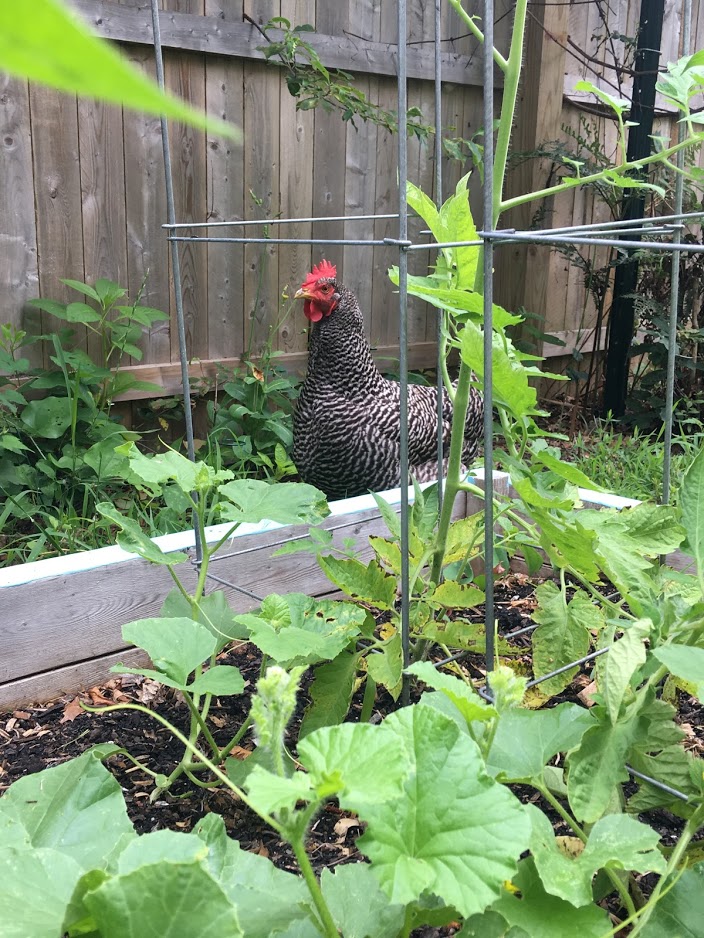
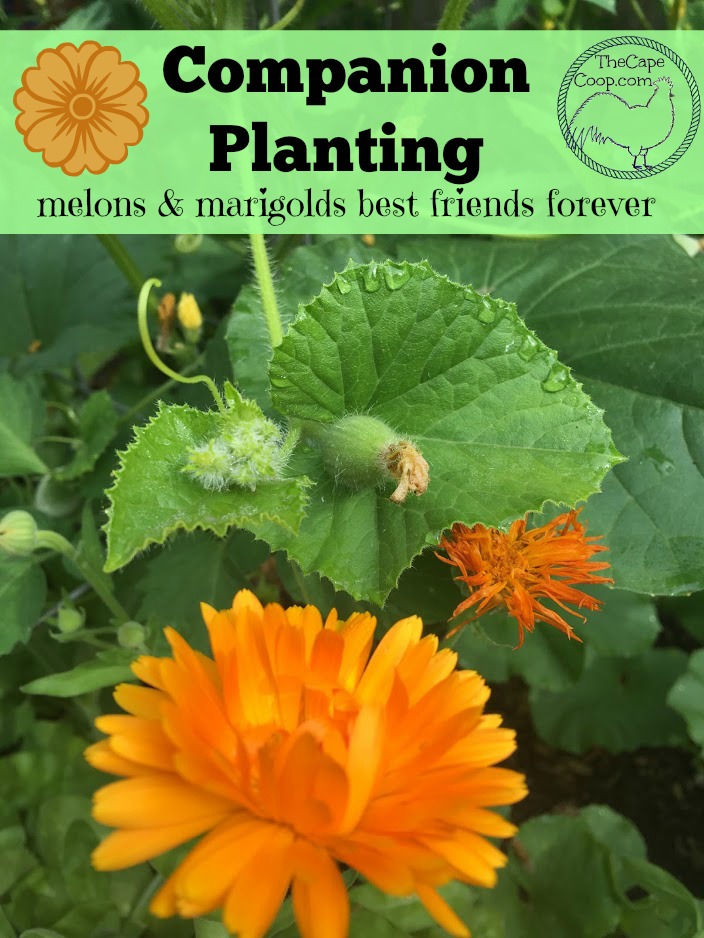
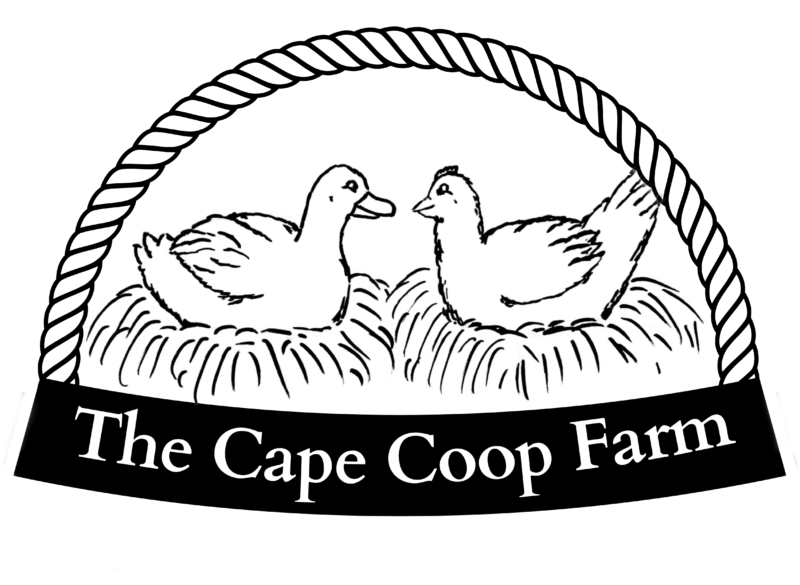
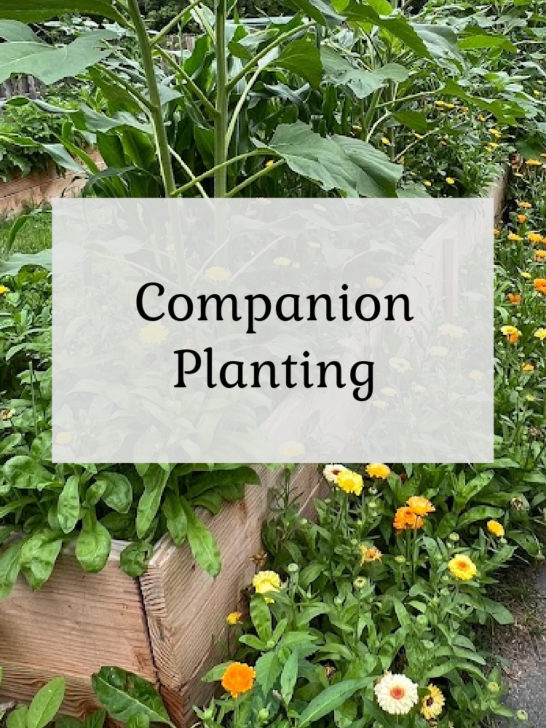
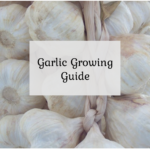
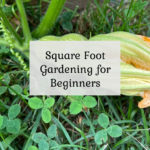
Wilson
Friday 19th of April 2024
So are tomatoes and carrots friends or are they enemies. You said "A tomato’s extensive root system can stunt the growth of carrots" but then went on to call them friends in the tomato section
Liz
Wednesday 24th of April 2024
This is one of the instances where one plant is a friend to another, but it isn't friendly in return. Tomatoes will grow well in the company of carrots, but the carrots will likely be small or strangely shaped as they grow around the tomato roots
Carol
Saturday 14th of April 2018
Would we call basil, marigolds, and oregano the popular plants since they're friends with everyone? Super helpful post just in time for my garden planning, thanks for sharing! Oh and I love that you've named your barred rock Beyonce - our toddler named ours Buddy.
Liz
Sunday 15th of April 2018
Definitely! Basil, marigolds & oregano would certainly sit at the popular kids table lol. Beyonce has been an awesome hen who has lived up to her fabulous name :)